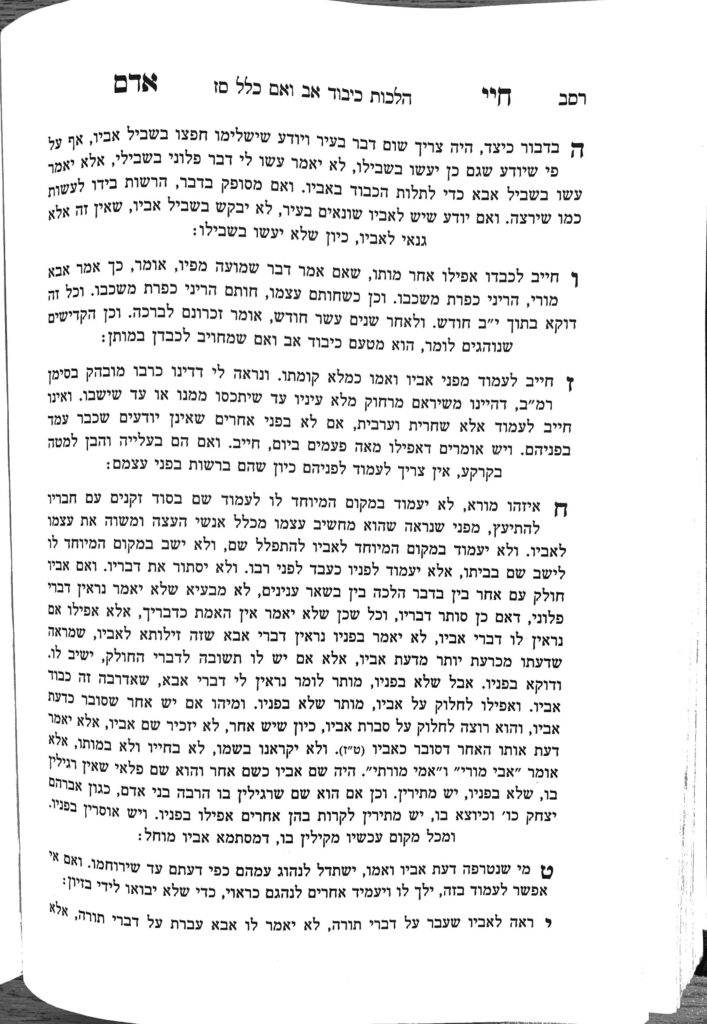We are beginning siman 10, where the Chayei Adam discusses situations in which a child needs to correct their parent. Although the child needs to take on the role of the teacher, as it were, it is inappropriate for the child to see themselves as above the parent nor to give off the impression they are talking down to them.
The Chayei Adam writes that when a child realizes that their parent has made a mistake regarding Torah u’mitzvos, the child should not tell their parent explicitly that they have transgressed something in the Torah, because it sounds as though the child is passing judgment on the parent. Rather, the child should respond in the form of a question, asking the parent, “doesn’t it say such and such in the Torah”, or something of the sort. In this manner, the parent will realize the mistake by themselves, and the child will avoid embarrassing the parent.
It is important to note that the Chayei Adam adds that there is an element of embarrassment for the child to reprove the father, so it is proper to do so in a way that the father does not perceive it directly.
It is also important to note that the above regards a parent who generally is shomer Torah u’mitzvos, and therefore would want to know of their mistake. If a child is a baal teshuva, and their parents are anyways not keeping Torah u’mitzvos, the child cannot expect to correct their parents’ behavior.
If the parent is incorrectly relating a statement of any sort–whether from a shiur, a news item, or a life fact–the child should also ensure not to explicitly state that their father made a mistake. Even if the father is incorrectly quoting a halacha, a child should not correct their parent explicitly. Rather, they should respond in the form of a question, asking “is it possible that maybe the halacha is actually like this” or something of the sort, from which the parent can understand the mistake they made.
Any time the child can say something in a manner in which they seem to be deferring to the parent, even when the child is in a position of guidance, it is appropriate to do so.
Summary
When a child needs to correct a parent, they should be careful to avoid explicitly stating that they made a mistake. Rather, they should respond to the parent in a way that they appear to defer to the parent, such as crafting their response in the form of a question, and avoid embarrassing them.



